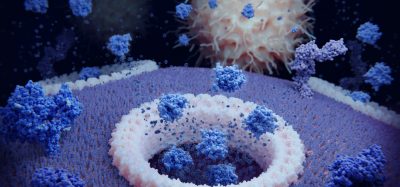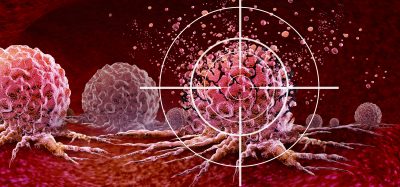TIGIT identified as new target for immuno-oncology therapies
Posted: 17 November 2015 | Victoria White
Antibodies against TIGIT could improve the function of the DNAM-1 protein, thereby improving the ability of natural killer cells to destroy tumour cells…


Researchers at IRCM have identified the mechanism of action for a new target for novel immune-oncology treatments.
The researchers study natural killer (NK) cells, which are crucial to the immune system and protect the body by destroying cancer cells. The team is more specifically interested in a protein called DNAM-1 that plays a key role in the elimination of cancer cells.
“We discovered the mechanism by which the DNAM-1 protein stimulates the function of NK cells and, thus, increases their capacity to eliminate cancer cells,” says André Veillette, MD, Director of the Molecular Oncology research unit at the IRCM.
Biomarkers aren’t just supporting drug discovery – they’re driving it
FREE market report
From smarter trials to faster insights, this report unpacks the science, strategy and real-world impact behind the next generation of precision therapies.
What you’ll unlock:
- How biomarkers are guiding dose selection and early efficacy decisions in complex trials
- Why multi-omics, liquid biopsy and digital tools are redefining the discovery process
- What makes lab data regulatory-ready and why alignment matters from day one
Explore how biomarkers are shaping early drug development
Access the full report – it’s free!
Antibodies against TIGIT could become new immuno-oncology therapies
The DNAM-1 protein is a receptor located at the surface of NK cells. It competes with other receptors that also want to interact with cancer cells, such as the TIGIT receptor that, on the contrary, reduces the efficiency of NK cells.
“When the TIGIT receptor interacts with an infected cell, it prevents its interaction with the DNAM-1 protein, which, as a result, suppresses the function of NK cells and slows the immune system,” explains Dr Veillette.
Recent discoveries have led to the development of several immuno-oncology treatments, which use antibodies to improve the immune system’s natural function. Some of these antibodies, namely anti-CTLA-4 or anti-PD-1 antibodies, have already shown lasting benefits for many cancer patients.
“Our results reveal how antibodies against TIGIT could become new therapies in immune-oncology,” adds Dr Veillette. “These antibodies could improve the function of the DNAM-1 protein, thereby improving the ability of NK cells to destroy tumour cells. This type of therapy could have a significant impact on the next generation of cancer treatments.”
Related topics
Drug Targets, Immuno-oncology








